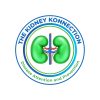Here’s what you need to know to keep your kidneys healthy.
Medications may help
There are two types of medications available that lowers blood pressure while slowing the progression of kidney disease. Ask your doctor if angiotensin-converting enzyme (ACE) inhibitors and angiotensin receptor blockers (ARBs) are right for you.
Clinical Trials have shown that two newer drug classes of medications for diabetes, SGLT2 inhibitors List of SGLT-2 inhibitors (sodium-glucose cotransporter-2 inhibitors) – Drugs.com and Finerenone have been proven to protect against kidney disease. Ask your doctor if these medications can help you.
Lab results to monitor
Chronic Kidney Disease is evaluated by testing your blood and urine. The estimated glomerular filtration rate (eGFR), serum creatinine, BUN and a urine test known as the urine albumin-creatinine ratio (uACR) are used to determine your level of kidney function. These tests can give a more clear picture of your kidney health.
You can monitor these results on your own. Always ask your physician for a copy of your test results. All lab results that are high or low should be discussed with your physician.
Diet Tips
- Buy fresh fruit as often as possible. Sodium is added to many prepared and packaged foods purchased from supermarkets and restaurants.
- Cook foods from scratch instead of eating prepared foods, “fast” foods, frozen dinners, and canned foods that are higher in sodium. When you prepare your own food, you control what goes into it.
- Use spices, herbs, and sodium-free seasonings in place of salt.
- Check for sodium on the Nutrition Facts label of food packages. A Daily Value of 20 % or more means the food is too high in sodium.
- Try lower-sodium versions of frozen dinners and other convenience foods.
- Rinse canned vegetables, beans, meats, and fish with water before eating.
